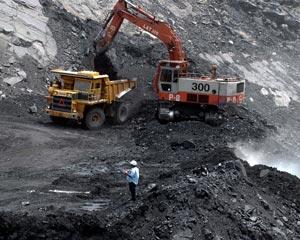
The importance of energy security to any economy cannot be overstated. The growth and performance of the economy depends on it as industry cannot thrive without reliable energy supply.
As such, it is surprising that the issue did not receive much attention at the recent Sadc summit, which was focused at regional industrial development. Energy security is of such importance that there is need for development of innovative ways of solving the region’s energy challenges.
South Africa, the biggest economy in the region, is also battling with a power crisis that has seen it implement different stages of load-shedding. The impact on the economy is already being felt with the latest producer price index (PPI) number indicating a contraction in the economy. These challenges have come out of years of neglecting the expansion of energy generation capacity in line with the growth of the economy. This has been followed more recently by an inconsistent power plant maintenance regime which has only served to worsen the current position.
With coal being the most abundant energy source in the region, it can be seen as the obvious energy source to deliver the most effective solution to the regional energy crisis. Coal is seen as a “dirty” energy source given the impact of its conversion to energy on the environment and climate change. The solution, however, is to develop a diversified pool of energy generation but one that is less leaning towards coal given that it is nonrenewable. Some funders of energy projects are even adopting the stance of not funding coal power generation, which essentially results in higher funding cost for these projects. As such, investment in renewable energy now seems like the most promising way of dealing with the power crisis in the region.
While we have known this for many years now, investment in renewable energy projects has been constrained by a number of factors, including poor regulatory frameworks, skills shortages and uncertainties over the technologies. South Africa has gone some way with its Renewable Energy Independent Power Procurement Programme (“REIPPP”) which commenced in August 2011 and aimed to deliver 3 625 megawatts of power onto the national grid (bumped up to a total of 6 925 MW in December 2012) from renewable energy sources by 2030. Renewable sources covered are onshore wind, concentrated solar, thermal, solar photovoltaic, biomass solid, biogas, landfill gas and small hydro.
Thus far, the programme has awarded contracts that has seen the generation of over 1 300 MW large from solar and wind resources, making some contribution towards the national energy supply and giving some room for the SA’s power utility to conduct the much-needed maintenance. The pressure at the national utility to conduct maintenance and to keep the lights on, however, has served to delay grid connection of some of the independent power producers (IPPs).
What are the lessons that Zimbabwe can draw from this? Creating the enabling framework would require the co-ordination of the Ministry of Energy and Power Development, the Zimbabwe Energy Regulatory Authority (Zera) that will set the policies and standards for power generation and regulate tariffs as well as the national energy utility Zesa that will offtake power from IPPs. Some funding mechanism and procurement frameworks for IPPs also need to be developed.
Zera has developed a Renewable Energy Feed-in Tariff (Refit) scheme to allow for the promotion of energy projects up to 10MW. This, however, is yet to be implemented. In order to achieve the renewable energy and efficiency targets set by the Zimbabwe’s current economic blueprint, the Zimbabwe Agenda for Socio-Economic Sustainable Transformation (Zim Asset) to increase power from renewable energy resources by 300 MW by 2018, policies have to be firmly in place.
- Chamisa under fire over US$120K donation
- Mavhunga puts DeMbare into Chibuku quarterfinals
- Pension funds bet on Cabora Bassa oilfields
- Councils defy govt fire tender directive
Keep Reading
There has been some talk of coal producers such as RioZim and Makomo Resources building coal-powered stations to alleviate power shortages. However, renewable energy remains largely untapped in Zimbabwe with the exception of the hydroelectricity at Kariba. Given the high solar irradiation (a measure of the quantity of solar resource) in the southern African region, which is among the highest in the world, more should be done to exploit this abundant energy source. The model that has been used in other countries has been that of Public-Private Partnerships (PPPs) under which the private sector brings capital and skills, and partners with the state to develop power generation projects. These would typically be funded on a project finance basis with funders requiring that the projects generate enough cash flows on their own to service funding obligations. This is rooted in a solid regulatory framework that has set standards for power generation, offtake agreements guaranteeing the purchase of power and stipulated tariffs.
The energy space is definitely an exciting one with the recent announcement by innovator Elon Musk of Tesla Motors of the adoption of the battery technology from Tesla’s electric cars to the household power packs, designed to store energy from solar for use in households. While the concept is not in and of itself a new idea, Tesla has managed to leapfrog the current battery technology. One of the issues troubling energy engineers in mass energy generation has been the inability to store energy efficiently. As such, once generated, energy usually has to be distributed and consumed. With new technology, load shifting, which is the ability to store energy during off-peak times for use during peak times, energy storability is poised to improve significantly. Until efficient power storage has been achieved, the focus now should be on generating enough energy to support the region’s industrial development.
l Nesbert Ruwo (CFA) and Jotham Makarudze (CFA) are investment professionals based in South Africa. They can be contacted on [email protected]











